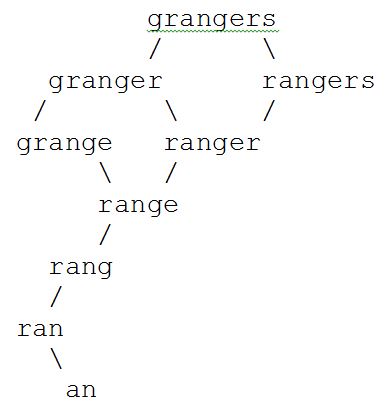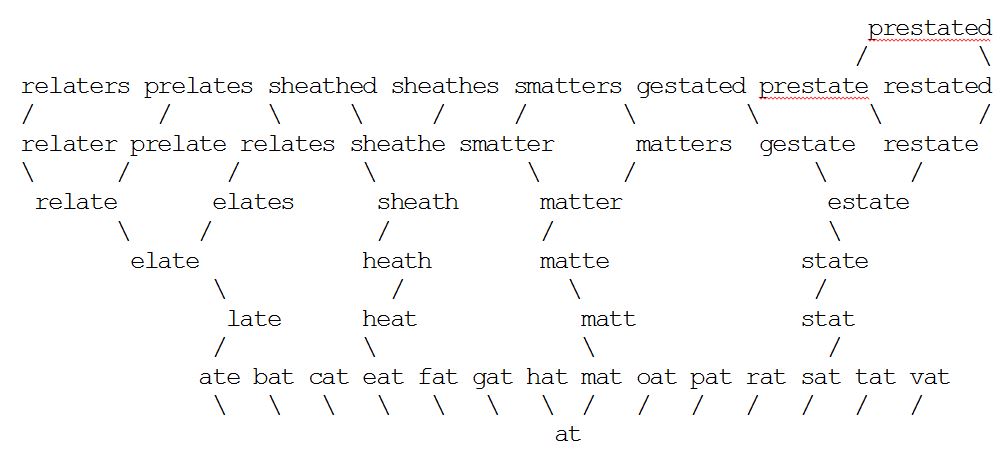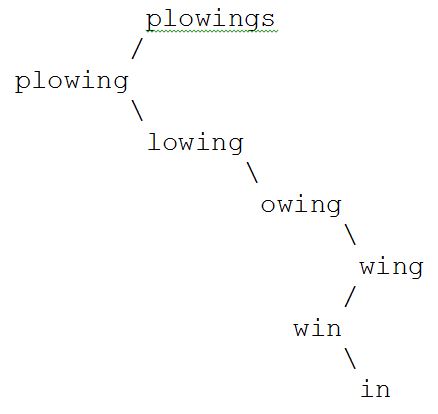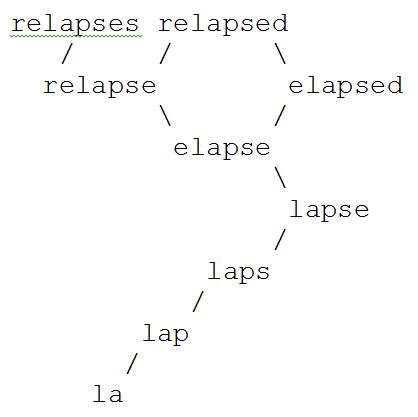Common Ancestry
Darwinism maintains that life arose on Earth from a single, very improbable, lucky accident. Natural selection then made the first species branch out into all other species. This means that all living organisms have one common ancestor.
Darwinism requires variation in small steps from a common ancestor. Common ancestry is a tremendous constraint, much worse than the constraint of small steps.
Common ancestry requires viable paths from one starting species to all other species. Many species can only arise from one species if there are unbroken chains of many generations from the starting species to each of the new species. In every chain, each generation must survive and produce offspring that differ slightly from the parents. We have shown that functionality is a strong and limiting restriction. Common ancestry is an even stronger and more severely limiting restriction.
The Primordial Alphabet Soup model illustrates this without boring statistics. Applying the idea of common ancestry to Primordial Alphabet Soup severely reduces the number of long words that can be reached starting from a single two-letter word.
Starting with 59 two-letter English words, we found that prefixing or suffixing one letter at a time can make the list grow to only 2,596 words. Now, with the added restriction of “common ancestry,” the maximum number of words that can “evolve” is much smaller, even when we choose the most prolific common ancestor.
Below are trees for the most prolific two-letter words. The 4 two-letter words "an," "at," "in," and "la" are the ancestors of all 12 eight-letter words and the 1 nine-letter word one can make from Primordial Alphabet Soup. If we must choose only one common ancestor, we should drop "an" and "in," because they produce only 1 eight-letter word each. Also, we should drop "la" because it produces only 2 eight-letter words. The most prolific common ancestor is "at." It produces 8 eight-letter words and 1 nine-letter word. In the previous list of 2,596 words there are 226 words containing "at," but we must exclude from them the following 11 words.
"atom," "atop," "atoms," "atomy," "atone," "atoned," "atoner," "atones," "format," "atoners," and "formats"
These words cannot be built up from "at." They had other two-letter ancestors. So, the total number of words starting from "at" is just 215, less than 8.3 percent of 2,596, and pathetically small compared to the full number of English words.
Darwinism requires variation in small steps from a common ancestor. Common ancestry is a tremendous constraint, much worse than the constraint of small steps.
Common ancestry requires viable paths from one starting species to all other species. Many species can only arise from one species if there are unbroken chains of many generations from the starting species to each of the new species. In every chain, each generation must survive and produce offspring that differ slightly from the parents. We have shown that functionality is a strong and limiting restriction. Common ancestry is an even stronger and more severely limiting restriction.
The Primordial Alphabet Soup model illustrates this without boring statistics. Applying the idea of common ancestry to Primordial Alphabet Soup severely reduces the number of long words that can be reached starting from a single two-letter word.
Starting with 59 two-letter English words, we found that prefixing or suffixing one letter at a time can make the list grow to only 2,596 words. Now, with the added restriction of “common ancestry,” the maximum number of words that can “evolve” is much smaller, even when we choose the most prolific common ancestor.
Below are trees for the most prolific two-letter words. The 4 two-letter words "an," "at," "in," and "la" are the ancestors of all 12 eight-letter words and the 1 nine-letter word one can make from Primordial Alphabet Soup. If we must choose only one common ancestor, we should drop "an" and "in," because they produce only 1 eight-letter word each. Also, we should drop "la" because it produces only 2 eight-letter words. The most prolific common ancestor is "at." It produces 8 eight-letter words and 1 nine-letter word. In the previous list of 2,596 words there are 226 words containing "at," but we must exclude from them the following 11 words.
"atom," "atop," "atoms," "atomy," "atone," "atoned," "atoner," "atones," "format," "atoners," and "formats"
These words cannot be built up from "at." They had other two-letter ancestors. So, the total number of words starting from "at" is just 215, less than 8.3 percent of 2,596, and pathetically small compared to the full number of English words.
The above example dramatically illustrates the effect of restrictions.
The most natural of all languages is the language expressed in the DNA alphabet. An extra restriction on the DNA language would severely limit the number of species that could exist.
The most natural of all languages is the language expressed in the DNA alphabet. An extra restriction on the DNA language would severely limit the number of species that could exist.



